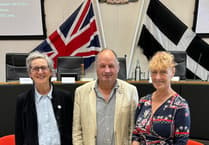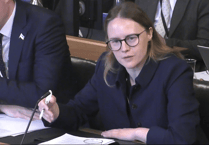My constituency office team recently passed the 10,000 cases closed landmark. This is a huge achievement in such a short time. However, when I posted this on Facebook, a few people were particularly sceptical, so I thought I’d explain what’s behind this number. ‘Caseworker’ is the name of the software package that most MPs use to log, track and manage all communications with constituents that require some sort of response. It also produces qualitative and quantitative management reports. There are three types of casework.
Firstly, ‘Personal Casework’ is as it says on the tin, where people contact us in need of help from their MP. This could be an issue relating to housing, benefits, child maintenance, domestic violence, mental health, anti-social behaviour or any other issue with which constituents feel their local MP could support. This is, in my view, the most important aspect of what we do and we deploy experienced, specialist caseworkers to manage such casework. Since the team were fully recruited about a year ago, we’ve opened 1,773 cases and closed 1,494.
The second type of casework is ‘Policy Casework’. This is casework where a constituent is querying government or party policy or asking for policy change. Since the team was established, we’ve opened 1,935 cases and closed 1,878. Policy cases are often not as simple as they seem. When policy is challenged, before responding, we have to check whether the change would be lawful and what kind of legislation would be required to change it.
The third type of casework is ‘Campaigns’. These are generally copied and pasted by constituents from organisations such as lobby groups, charities, vested interests, pressure groups, or even other political parties. These are given a lower priority, although every single email is noted and recorded. Since the team were established, we’ve opened 7,829 cases and closed 6,664. Because these are often very similar in format and content, and in order to divert more resource to more pressing casework, some of these responses are sent as and when we have capacity in the team to deal with them. We tend to see a short sharp focus on a particular campaign and then it drops away very quickly.
In addition to emails, we also get phone calls and letters, and these are all logged on the central casework system. One challenge that seems to often crop up is that we have to confirm that the person contacting us is a constituent of Camborne, Redruth and Hayle constituency. Most frequently when I am contacted to ask why we haven’t replied, it’s because our follow-up request to provide address and postcode so we can ensure that the name matches the electoral register, has been ignored. If people refuse to allow us to check they’re a constituent, we are generally unable to help them.
It's a fact of life that there will always be the usual naysayers and knockers who, regardless how hard the team work, it will never be enough. But I have seen the immense relief, satisfaction and happiness that this team is bringing to many people in sometimes desperate need. We should all be very proud of this team.





Comments
This article has no comments yet. Be the first to leave a comment.